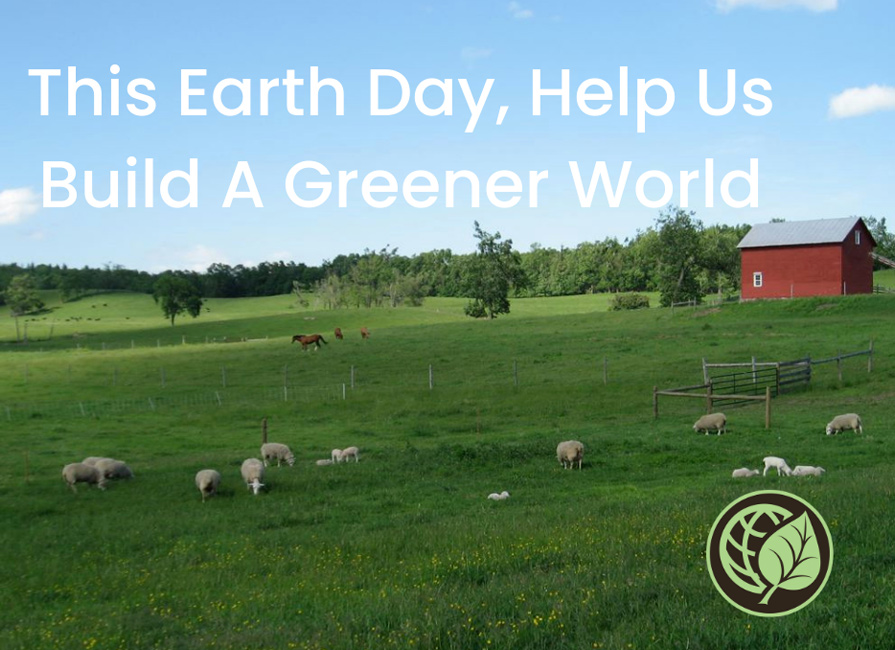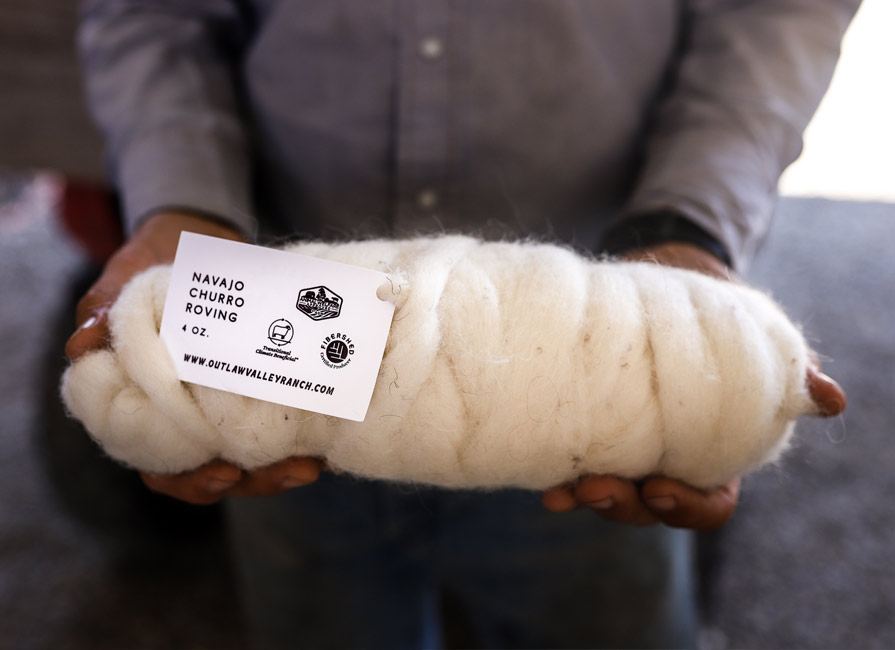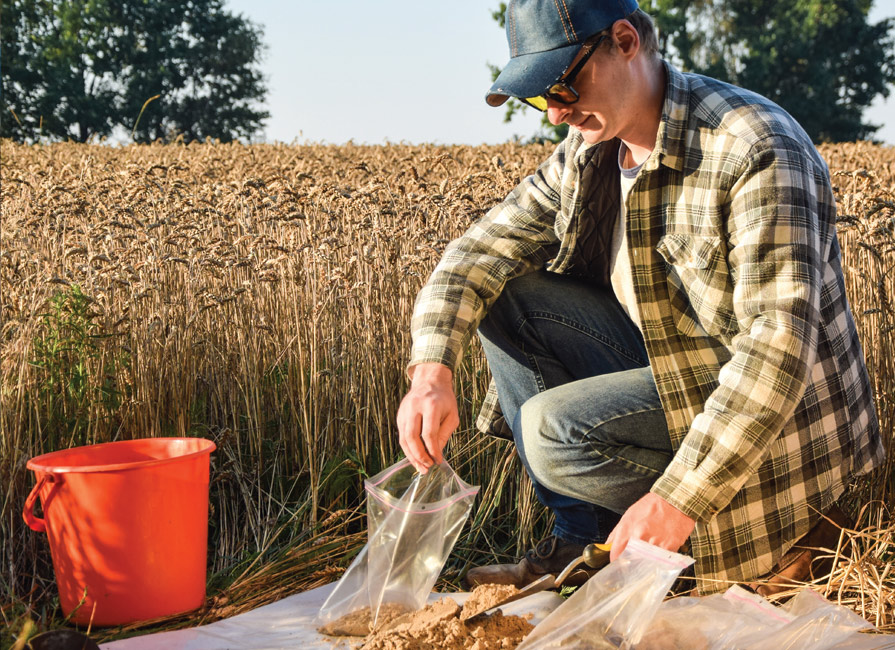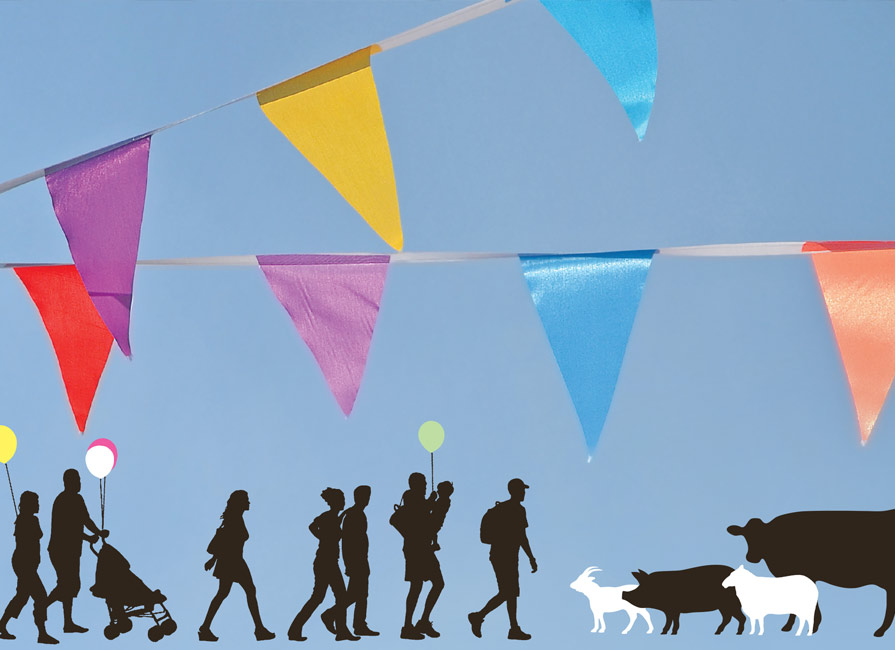Market research shows that today’s consumers are increasingly interested in knowing where their food comes…

Earth Day 2022: 22 Ways to Take Action!
Earth Day is a day to celebrate our planet, reflect on the importance of our choices, and take action to change the world for the better. While it may be just one day on the calendar, the actions we take today can make a difference in our communities, far into the future!
One way you can make a difference right now is to purchase sustainable products from AGW-certified producers who work day in and day out to bring the very best food to their communities while raising their animals to the highest environmental and welfare standards. These farms and businesses are producing products that are better for animals, people and the planet, and truly deserve our support!
If you’re looking to do your part this Earth Day of 2022, here’s a list of 22 actions you can take right now to help our planet, on Earth Day and beyond:
- Switch to certified sustainable meat and dairy. Very few labels guarantee this (we certify most of them at A Greener World), and other claims are usually just dressing up the same old industrial products. Learn your labels here.
- Don’t buy stuff you don’t need. Excessive production and consumption of consumer goods (which often end up in a landfill) have a significant—and many argue unnecessary—impact on global greenhouse gas emissions. (And think of the time you’ll save NOT having to put all that stuff away!)
- If you can, switch to renewable energy. It can help mitigate climate change by reducing greenhouse gas emissions.
- Get more miles per gallon—or eliminate gallons per mile. The ultimate would be to live car-free, and while we know that’s a high goal you can also go electric or significantly improve your fuel efficiency with a motorcycle or hybrid vehicle.
- Stop flying. Or fly less and offset your emissions with a reputable organization (read more here about the mixed bag of offsetting emissions).
- Have one fewer child, cat or dog. We recognize this is a really tough topic and not anyone else’s business, but data shows having one fewer child has the single highest impact on emissions. Pets consume significant energy and resources, too.
- Vote and advocate for climate policies with demonstrated positive effects on emissions. The impact of this is incalculable.
- Don’t buy into fake meat. It’s big, it’s processed, it’s expensive and it’s unproven–and it’s making a lot of shareholders very rich at the expense of real solutions. Instead consider nutritionally appropriate amounts of high-welfare, grassfed meat and dairy from AGW-certified farms practicing climate-friendly agriculture (we don’t really need grilled chicken on everything, do we?).
- Reduce your energy consumption: ditch your dryer, use energy-efficient light bulbs and reuse/recycle. These add up to modest emissions reductions and they’re relatively easy to do. Also, while many people are already living small by necessity, for those with large, underutilized houses and an interest in reducing emissions, consider downsizing. Less space to heat and cool, fewer rooms to buy stuff for and less to clean!
- Give plastic bags a polite decline. Or bring your own reusable bag for grocery and other shopping. Plastic bags take hundreds of years to decompose and pose a particular threat to wildlife. You can use—and reuse—a good bag for years.
- Walk or ride a bike to get to the store, neighbors’ house, or to shop. We know this is not possible for everyone everywhere, but it’s much better for the environment (and you’ll get great exercise and never have to look for a parking spot😊).
- Go paperless. If you can, opt into online billing to cut down on paper waste–and hey, you’ll save a stamp or two while you’re at it!
- Try thrifting. Avoid “fast fashion” and spend time shopping in second-hand stores, at white elephant sales, and thrift shops. The clothing industry’s quick turnaround of seasonal fashion trends is a waste of resources and a source of pollution. And after all, what’s old is new!
- Donate, donate, donate! You haven’t used those gifts you have stored in the back of your closet? Get rid of them. Clothes you haven’t worn since the 20-teens? Bye-bye. There are also many organizations who will pick up your gently worn furniture and other items (or you can drop them off).
- Share, share, share! Do we all need to own our own pressure washers, kayaks, and tile saws? Money and resources are being used to produce items we may only use a few times a year (if that!). Share items you don’t use regularly with friends, neighbors, and rent other equipment you may only need once in a while.
- Avoid buying disposable products. Just…don’t. That five minutes of convenience will end up in a landfill, adding to the next generation’s problems.
- No bottled water, please. According to researchers from the Pacific Institute, the energy required to produce, transport, and chill bottled water is many times the amount required to produce tap water. In addition, plastic bottles can take hundreds of years to decompose. So, yes, drink plenty of water for good health, but use a reusable water bottle or simply a glass as you pour water from your tap.
- Turn off the lights! You may have heard that from your mother, but she knew what she was talking about. Based on consumption data, lighting accounts for 12% of the average household electric bill. By shutting off unnecessary lights, such as in empty rooms, you will not only save money but also lower your carbon footprint.
- Turn off unused electronics. Many appliances and electronic devices, including microwaves, televisions, scanners and printers use standby power (sometimes referred to as vampire or phantom electricity) to save warm-up time. Use power strips for these items to simplify turn them off when not in use.
- Consider composting. According to the EPA, nearly 30% of our waste consists of food and yard scraps. Over 50 million tons go to a landfill or incinerator. Composting not only saves disposal costs — and reduces the methane emitted from landfills — but it also creates a valuable soil amendment, reducing the need for fertilizers. And it’s easy to do — just remember to keep meat, bones and dairy products out of the mix.
- Save water. Using less water saves energy and infrastructure costs and helps ensure an adequate supply of clean water for the future.
- Share solid information about food and farming with your friends and family. Help us spread the word about our work at A Greener World, find us on social (follow us on Facebook, Twitter and Instagram) to share our posts with your networks, and please consider making a gift to support our work!



